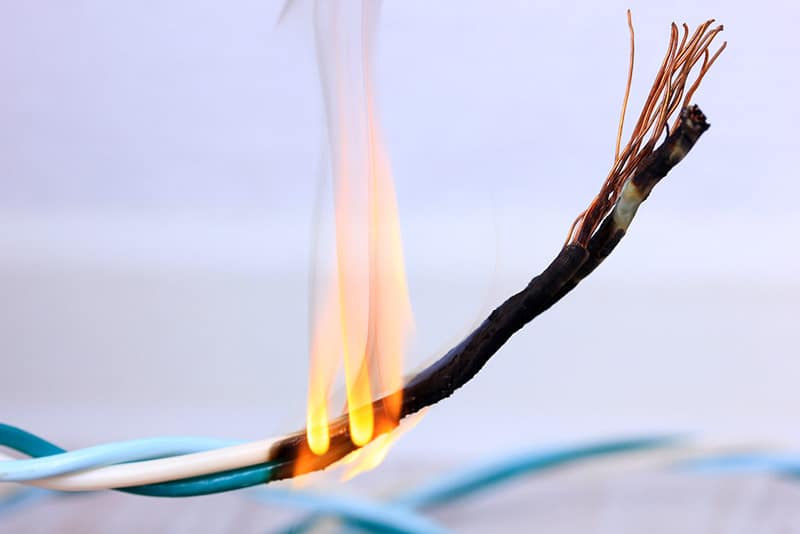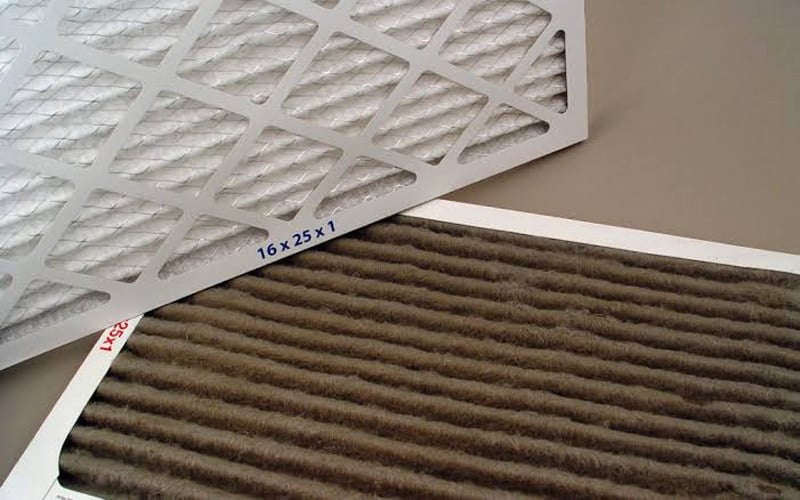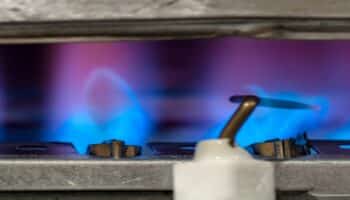We've independently reviewed this article to make sure it's as accurate as we can make it.
To find out more about our article creation and review process, check out our editorial guidelines.
Winter is bad enough, right? But if your furnace keeps blowing a fuse, you’re probably worried about winter getting even worse.
Lack of heat in your home during the frigid winter months is dangerous, and purchasing new HVAC equipment is expensive.
But is new equipment necessary? There’s a good chance it isn’t since blown fuses can happen for a variety of reasons.
Keep reading. Here are6possible causes and fixes. Hopefully, one of them will address your issue.
6 Reasons Why Your Furnace Keeps Blowing a Fuse
Some reasons behind a blown fuse—or more likely a tripped breaker, depending on where you live and how old your home is—will be obvious. Part of your electrical system itself could be the cause of the problem. But there are less obvious reasons as well.
Some of the following will have simple fixes. Some of them should be addressed by a professional immediately, as they could be dangerous.
1. Damaged Wiring

Wiring sits behind your walls and it’s something you may never think of. But if it’s outdated or damaged, it can cause a fire in your home.
A tripped breaker or blown fuse is often the result of something going on with your wiring. Here are several common warning signs that there could be a problem with your wiring:
- Breakers that constantly trip
- Buzzing, crackling, or popping sounds
- Frayed wires
- Heat or scorch marks
- Lights that seem dim
- Loose wiring
- Smoke
If your fuse keeps blowing and you’re also dealing with a selection of any of the above, you need to address your wiring.
Solution. As mentioned above, most of your wiring is behind the walls. If you suspect that your wiring is the problem, call an electrician or HVAC professional.
2. Low Airflow
There are multiple causes for reduced airflow throughout your HVAC system which include:
- Undersized ductwork
- Undersized blower motor
- Dirty and clogged filters [more below]
Your system needs to move an amount of air that’s customized to your HVAC components. If there isn’t enough circulation your furnace will struggle and potentially overheat.
Another issue can be problems with your furnace control board—assuming you have a newer furnace. The control, or circuit board, is the brain of your system and helps to regulate heat.
Anything that’s generating excessive heat in your furnace can lead to tripped breakers and blown fuses.
Solution. You’ll need an HVAC professional to determine whether or not your ductwork and or blower motor is undersized.
3. Clogged Filters
Lack of maintenance when it comes to filters is one of the leading causes of a variety of HVAC problems.
Over time, dust and debris build up on the filter, restricting more and more airflow. Eventually, this begins to impact the blower motor since it’s working harder and harder to do its job. Eventually, it can overheat which in turn can cause a high limit switch to malfunction. At this point, it’s almost inevitable to have a fuse blow.
Solution. Each air filter manufacturer will provide a replacement or cleaning schedule so follow those guidelines. A typical household will range between 30 to 90 days before a replacement is necessary.
If you live in a household with only one or two people and no pets, you’ll probably fall into the 90-day category. However, for a large household with one or more pets, you will be closer to the 30-day replacement schedule.

4. Overvoltage
Your furnace has a maximum supply voltage—every electrical or electronic device is designed this way. Should voltage exceed this maximum amount, it can cause considerable damage.
Depending on the way an item is designed, high voltage will either cause it to simply stop working or ultimately start a fire. If your furnace is constantly blowing a fuse, overvoltage could be a problem.
Assuming your system was installed by a certified professional overvoltage should not be an issue.
Solution. If you determine that your furnace is receiving surges of voltage, make an appointment with an HVAC professional.
HVAC Expert: Undervoltage can also cause the amps to go up due to Ohms Law. Breakers are designed to trip when both a current (amps) or voltage hits the threshold.
5. Failing Valves
For those of you with gas furnaces, this can be an issue.
This valve opens and closes, allowing the flow of gas to your furnace’s pilot light and burners. It’s a critical safety feature of your HVAC system. It’s actually two valves placed in a series, one after the other, that operate using electromagnetics.
The first valve, commonly called the pilot valve, supplies fuel to the pilot light. The second valve, called the main valve, sends gas to the burners.
If you have regular maintenance done on your furnace, there should be no issues with these valves. However, if you’re negligent when it comes to regular maintenance, there is a possibility of the valves becoming clogged. If this happens, it can cause the fuse to trip.
Solution. To troubleshoot and test your valves you can follow this step-by-step tutorial. You can also watch the following video, which will provide you with 10 things to check when troubleshooting a bad gas valve.
6. Water Leaks
Occasionally, there may be drops of moisture or condensation in your furnace, especially if you have a humidifier attached to the system. Leaks can also be caused because of a dirty filter.
And condensation is created within a high-efficiency gas furnace when it releases exhaust gases.
Solution. Do a visual inspection of your furnace, looking for a buildup of condensation or leaks. If you can’t find the source, have an HVAC professional come and inspect your system.
Conclusion
Ultimately, it may take a little troubleshooting and sleuthing before you determine the reason for a furnace fuse that keeps blowing.
To recap, the cause could be any of the following:
- Damaged wiring
- Low airflow
- Clogged filters
- Overvoltage
- Failing valves
- Water leaks
In many cases, the underlying issue is as simple as a clogged air filter. In fact, that’s the most common issue behind several HVAC problems. However, as indicated above, there could be dangerous circumstances behind your blown fuse, so if you expect that’s your situation, contact a professional immediately.
Hopefully, you were able to find an answer to your question here. Why not check out the related posts below to see if there’s something else we can help you with?







